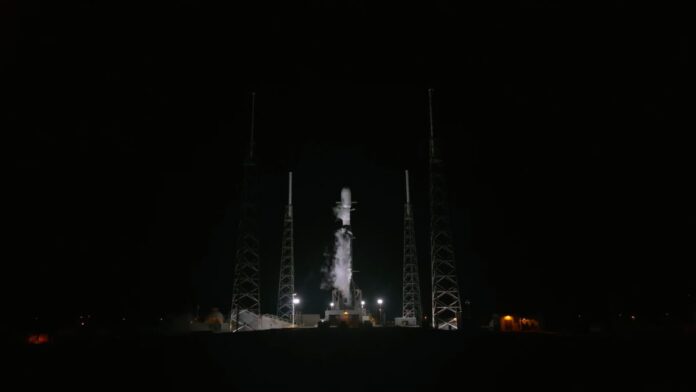A SpaceX Falcon 9 rocket will have to wait a bit longer to tie a reuse record.
The company had planned to launch 54 of its Starlink satellites from Cape Canaveral Space Force Station in Florida atop a Falcon 9 on Friday at 12:40 a.m. EDT (0440 GMT). It’ll be the 16th mission for this particular rocket’s first stage, matching a mark set less than a week ago by another Falcon 9.
But it didn’t happen: The SpaceX mission team called an abort about 40 seconds before T-0, for reasons that weren’t immediately clear.
Related: SpaceX’s Starlink satellite megaconstellation launches in photos
“There are 1,000 ways to launch a rocket, and there’s only one way that it can go right,” SpaceX’s Atticus Vadera said during Friday morning’s launch webcast. “So, given that, we are overly cautious on the ground. And if the team or the vehicle sees anything that looks just even slightly off, we will stop the countdown.”
The Falcon 9 and the Starlink satellites are in good health, Vadera added.
SpaceX now plans to launch the mission on Saturday (July 15) at 11:50 p.m. EDT (0350 GMT on July 16). You can watch it live at Space.com when the time comes.
There was still some spaceflight action on Friday, even without the SpaceX mission. India launched its robotic Chandrayaan 3 mission at 5:05 a.m. EDT (0905), for example, sending a lander and rover toward the moon.
The Starlink launch will be followed on Sunday by another liftoff, if all goes according to plan: A Rocket Lab Electron vehicle is scheduled to launch seven small satellites to orbit Sunday evening from its site on the North Island of New Zealand. The company plans to recover the Electron’s first stage after liftoff, part of its effort to make the booster reusable like the Falcon 9.
Editor’s note: This story was updated at 6:15 p.m. ET on July 14 with news of the new target launch date of July 15.

